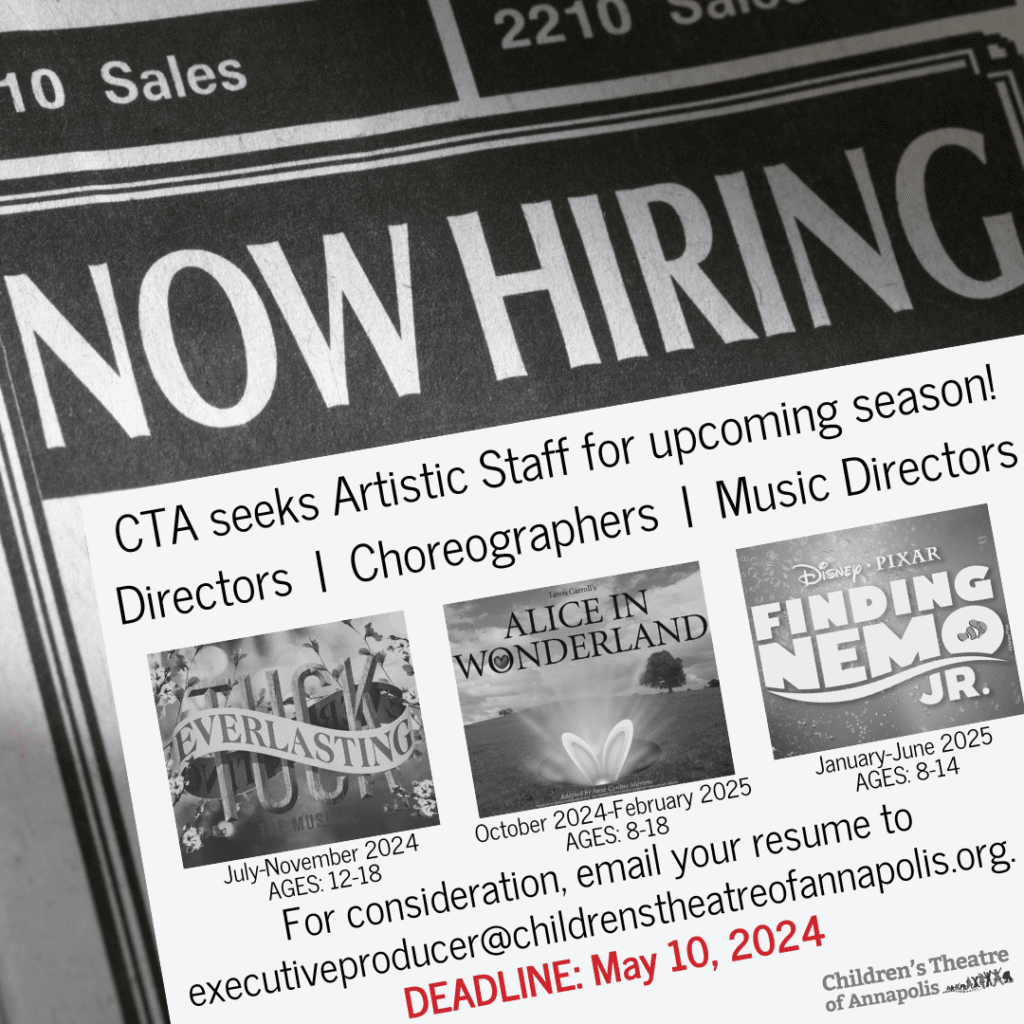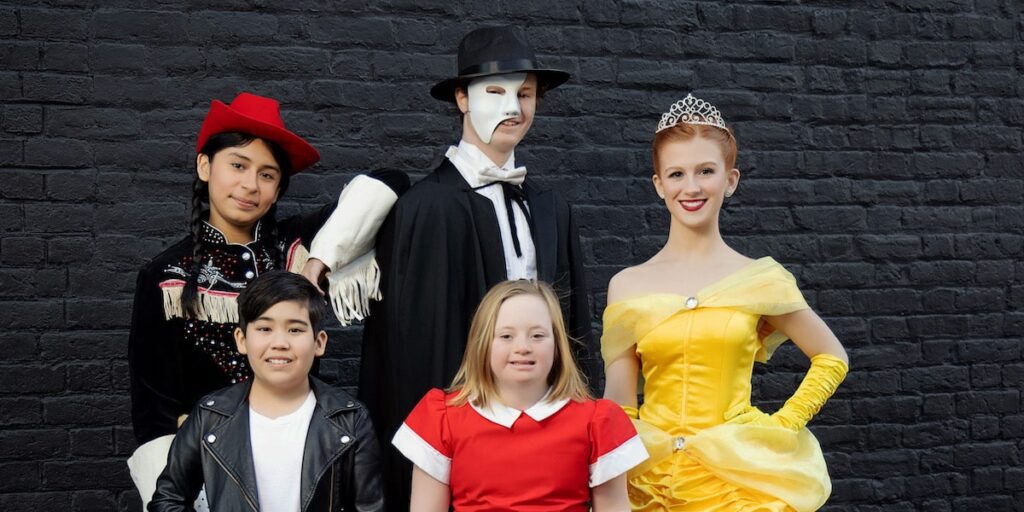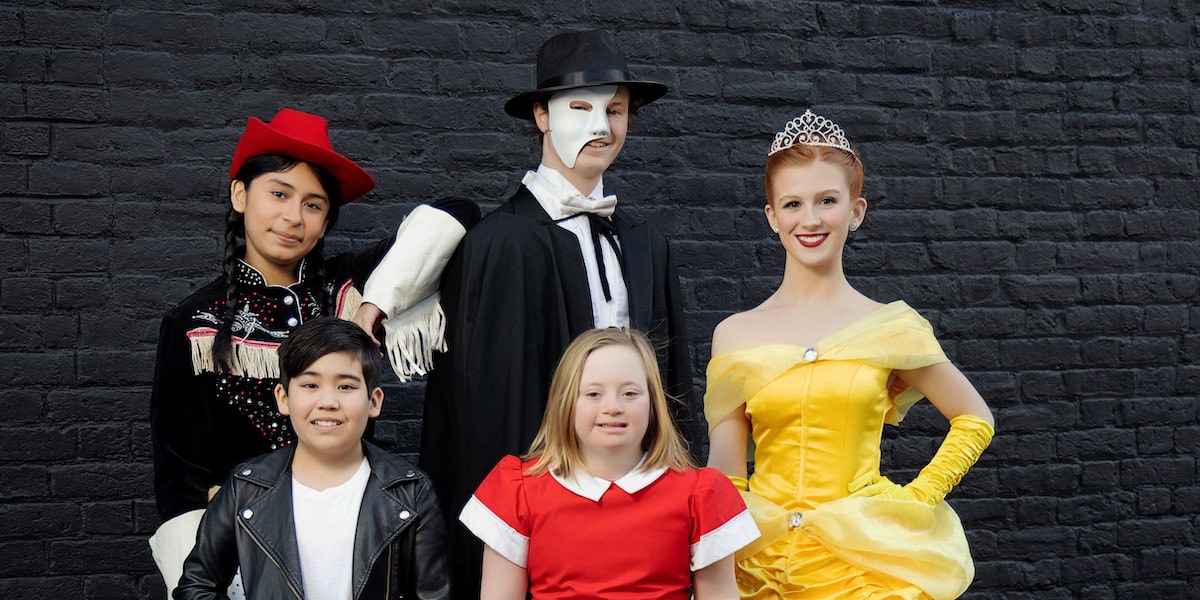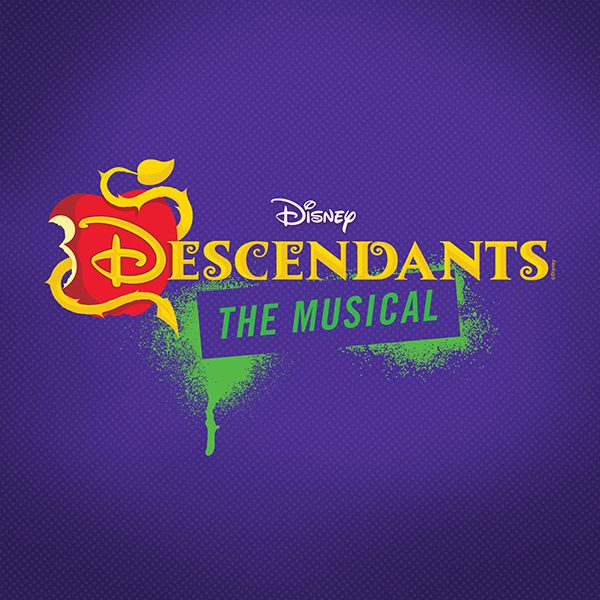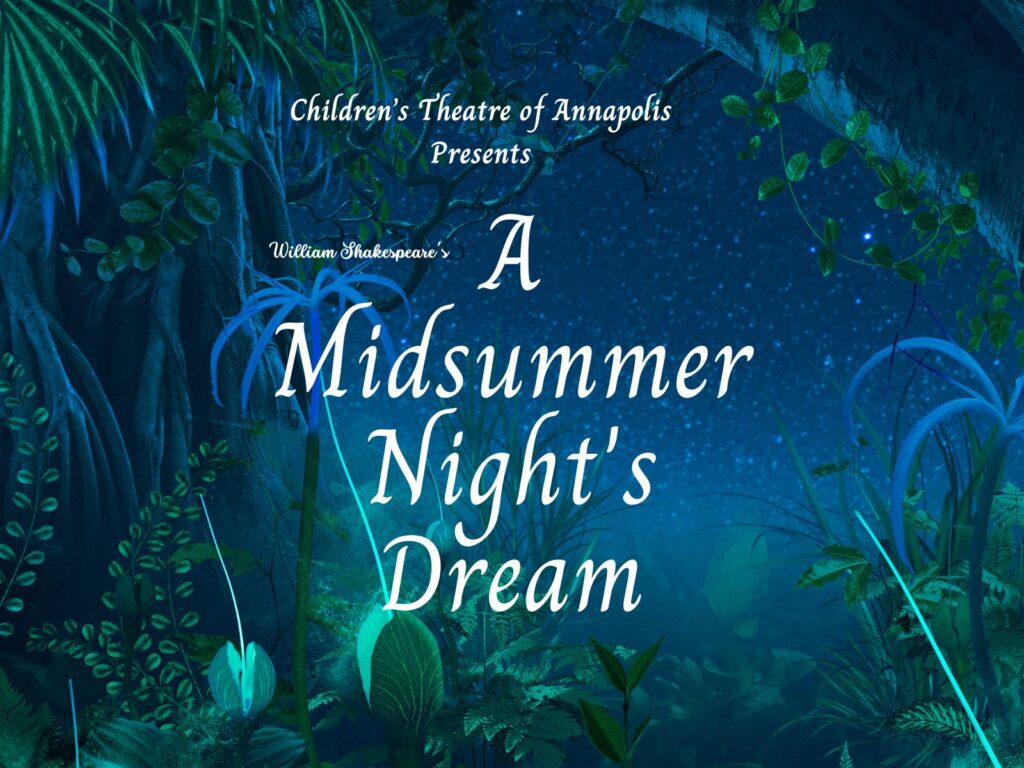“All the world’s a stage” might be an oft-referenced quotation coming from Shakespeare, but for some children and teenagers, it can feel like a reality. Their schedule is made up of performances, rehearsals, and auditions, and their social circle is made up of current and former castmates. For these budding young performers, theater provides an outlet for them to grow not only in their talents but also as human beings.
And there’s no shortage of local opportunities for them to gain experience, thanks to a thriving community of children’s performing arts organizations. Children’s Theatre of Annapolis, the Talent Machine Company, Stage & Screen Studios, Compass Rose Theater, and many others make it possible for these youth to experience what it’s like to be part of a professional-quality production from start to finish.
While the thrill of singing or acting onstage in front of a live audience is rewarding in and of itself, theater teaches valuable life skills. Performers learn the power of experimentation and imagination. They get comfortable with speaking publicly or thinking creatively. The rehearsal process demands that they manage their time and multitask. Through all of it, they gain confidence.
But more than all of that, there’s one skill that might be most important of all—empathy. “When you truly inhabit a character and think about how to present another person outside of yourself, it encourages thought processes that are less self-centered and myopic,” says Michelle Bruno, president of Children’s Theatre of Annapolis (CTA).
Sounds exciting, right? But there’s a lot of work that goes into the theater process. Like any extracurricular activity, being part of a show requires dedication, but it pays off with big rewards. “I’d say be prepared for the time commitment, homework, sacrifice, and hard work,” says Lea Capps, president of Talent Machine Company (TMC). “With that comes many opportunities for making friends, learning new skills, and having a great time.”
Much of the preparation might start before the youth are even involved. These companies must select material that fits their program, often choosing shows they think will be interesting, challenging, appropriate, educational, and a good fit for their talent pool. They also must hire artistic staff—usually a director, music director, and choreographer—who can engage the cast and help foster an environment that’s productive and educational.
The production process starts for the youth with an audition, and every company has a slightly different approach. Audition notices break down what’s expected, often a short sample of a prepared song, followed by the opportunity to dance and read lines from the script. Although auditions can feel stressful, they’re an opportunity for performers to show off what they’re capable of doing. “Remember that an audition does not need to be perfect,” says Pete Garvey, owner of Stage and Screen Studios (S&S). “Members of the directorial staff will be there to observe, provide advice, and encourage.”
Bruno emphasizes that although preparation is important, it’s just as necessary for auditioners to be themselves. “Understanding of the show, and a clear understanding of the character you are auditioning for, if you are auditioning for a specific role, is critical,” she says. “The director and artistic staff should see what you would bring to the show and your take on the character.”
From there, the fun and hard work begin in equal measure. Once the cast list is announced, rehearsals begin. “I know that most outsiders don’t realize the amount of rehearsal time it takes to put on a production,” Capps explains. “I’ve had people ask, ‘Can’t you just do a couple of numbers real quick?’ A ‘couple of numbers’ takes several hours of rehearsals.”
Garvey also sees many people who are surprised by what goes into a rehearsal. It requires actors to connect with the material as they learn it. “Someone new to the theater might be surprised by the intensity and duration of rehearsals where we thoroughly explore various choices, emotions, and interaction of characters throughout each scene,” he says. “It’s not just singing, dancing, and saying lines.”

Though the kids will be the ones who ultimately end up onstage, the rehearsal process is often a collaborative one that involves the whole family. Garvey explains, “We highly encourage parents to actively support their child’s involvement in the theatrical journey. Whether their student is a newcomer or a seasoned performer, parents play a crucial role in the process. This includes assisting with learning lines, engaging in conversations about each rehearsal’s process, and providing encouragement as their child tackles new character development challenges.”
Parents also fulfill a vital need as volunteers who help build sets, create costumes, collect props, publicize the show, and work on the tech elements like lights and sound. “I love to have the parents participate,” says Capps. “As with any community theater, we need many volunteers to make our shows go. Many of them are parents. Some come in early on in the process and help with rehearsal monitoring or costuming or props, and others come in later for set building, set decoration, and tech.”
Many students get theater experience through schools, either by taking music and acting classes or by participating in the school musical or school play. But these youth-centered community theaters offer a unique experience to connect with fellow thespians from other schools in an environment that’s focused on their area of interest.
“I think it’s creating more opportunity and diverse experiences when you work with a community theater,” Bruno explains. “This allows children to work with other children that they normally would not interact with. This is especially expansive for home-schooled children. It allows children to gain more experience and development opportunities as well.”
Community theater participation also takes the experience up a step. “School drama programs offer invaluable benefits to students, while organizations or companies dedicated to the theatrical process possess more concentrated resources, often closely resembling professional theaters,” explains Garvey. “Given the uniqueness of each student’s journey, some may prefer participating in a school drama environment within their familiar peer group.
Meanwhile, others may opt for increased diversity, seeking to establish new friend groups and acquire more professionally oriented theatrical skills and experience in an established theater company. In either scenario, students derive significant benefits on multiple levels while engaging in performing arts.”
Some parents might find themselves asking, “Is theater the right pursuit for my child?” For younger, less experienced children, it never hurts to enroll in a workshop, class, or summer camp—such as those offered by any of these three organizations—just to get a sense of how much they enjoy the challenge before they audition for a mainstage production.
And if they do decide to get involved? Get ready for something special. “The process is challenging,” Bruno says, “but the ability to take a thought, a vision, and then come together as a theater family and create something so beautiful is the true magic.”
Theater Programs in Central Maryland
Children’s Theatre of Annapolis (CTA)
childrenstheatreofannapolis.org
CTA provides a wide range of theater arts education. These programs give each participant the opportunity to learn the basics of theater, expand their imagination, develop voice, dance and performance techniques, and much more. All training, workshops and camps are aimed to specific age and skill groups. Shows throughout the year.
Compass Rose Theater
Compass Rose Theater offers summer camps, workshops and theater classes at The Maryland Hall for the Creative Arts. Classes are taught by accredited teachers with a Bachelor’s or Master’s degree in theater, have teaching experience, and work in the professional theater world. Multiple shows per season. The Young Actor’s Studio at Compass Rose is for students who want to pursue theater skills and possibly go pro.
Stage & Screen Studios
Stage & Screen Studios offers a safe, creative environment for students to learn and explore all aspects of theater and television performance and production. Lessons cover introductory acting through advanced performance for students at any age and any level! Multiple shows throughout the year.
The Talent Machine Company
The company was founded with the purpose of giving young people the chance both to spread their theatrical wings and learn the value of dedication, commitment and teamwork. The Talent Machine produces three full-length, professional-quality musicals each year, and is committed to bringing the joy of musical theater to audiences everywhere, fr
By Dylan Roche



